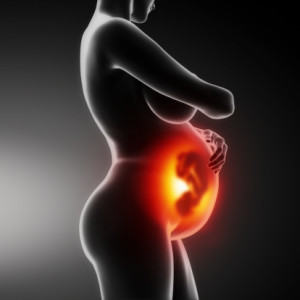Home Births Gone Wrong – Are There Legal Options?
 Although only a small number of mothers choose to give birth at home in the U.S. (about 1 %, according to the Centers for Disease Control and Prevention), but in the past fifteen years, that number has been slowly rising. As more women opt for home birth, more medical authorities have argued that it is not worth the risk.
Although only a small number of mothers choose to give birth at home in the U.S. (about 1 %, according to the Centers for Disease Control and Prevention), but in the past fifteen years, that number has been slowly rising. As more women opt for home birth, more medical authorities have argued that it is not worth the risk.
For instance, The American Journal of Obstetrics and Gynecology released a study in 2010 stating that planned home births were 2 to 3 times more likely than planned hospital births to result in fetal deaths. While this study has proven to be controversial, the journal is not alone in expressing concern about the risks of home birth gone wrong. For instance, The Royal Australian and New Zealand College of Obstetricians and Gynaecologists released a statement in 1987 and revised in 2014, which argues that home birth cannot be supported due to such increased risks.
Although many woman manage to give birth safety in the comfort of their own homes, some may wonder what will happen if there are complications. For instance, can a medical professional such as a midwife be held liable as negligent in such a case? The answer is, yes, home birth attendants can be liable if they deviate from accepted standards of care during childbirth.
Home births gone wrong
Many women opt for home birth because they want to deliver their child in a familiar setting and would like to feel that they, and not a hospital, are in charge of the process. While this can indeed be the way things turn out, women can also experience complications at home, which can be more problematic than in a hospital setting.
While a woman might be attended only be a midwife (rarely, a doctor) at home, a hospital will have a team of professionals who will be able to assess the situation from many vantage points. Specialized medical equipment will be available only at a hospital in some cases as well. If the birth takes a turn for the worst, it is important that a woman be transferred to the hospital as quickly as possible. Unfortunately, sometimes even the small delay of an ambulance ride can made a difference in the final outcome.
Grounds for legal action
Childbirth complications can occur in any setting (a hospital, birthing center, or private home), and even with the best of medical care, injury or tragedy are always possible. However, just as in a hospital, where an obstetrician, nurse or other medical professional who deviates from the accepted standard of care in a way that results in damage or death to mother or child can be held liable in a birth injury lawsuit, a midwife attending a home birth is a licensed professional who can also be held to such standards.
Like an obstetrician, a midwife is responsible to correctly assess the situation he or she is faced with during childbirth to determine the proper course of action. This may involve following the proper procedure for shoulder dystocia, monitoring the baby’s oxygen levels, or in extreme circumstances, determining that a mother needs to go to the hospital for a C-section or emergency treatment in a timely fashion. A midwife is also responsible for having a plan, agreed upon with the mother, for handling such an emergency prior to the actual birth.
If the midwife, or other attending professional at a home birth deviates from the accepted standard of care in a way that results in injury, such professionals (as well as any institutions such as birthing centers with which they are affiliated) can be liable for these injuries in a court of law.
- The Age, Home births endanger mother and child http://www.theage.com.au/comment/home-births-endanger-mother-and-child-20150319-1m3hi9.html
- Baltimore Sun, Details on midwife unaired in Hopkins malpractice case http://articles.baltimoresun.com/2012-07-14/health/bs-hs-hopkins-malpractice-midwife-20120713_1_nurse-midwives-rebecca-fielding-home-births
- ABC News, CDC Study Says Home Births on the Rise in U.S. http://abcnews.go.com/Health/Wellness/cdc-home-births-rise-us/story?id=9998349
- Royal Australian and New Zealand College of Obstetricians and Gynaecologists, Statement Concerning Home Births http://www.ranzcog.edu.au/documents/doc_view/2051-home-births-c-obs-2.html

 Resources
Resources
 Resources
Resources

